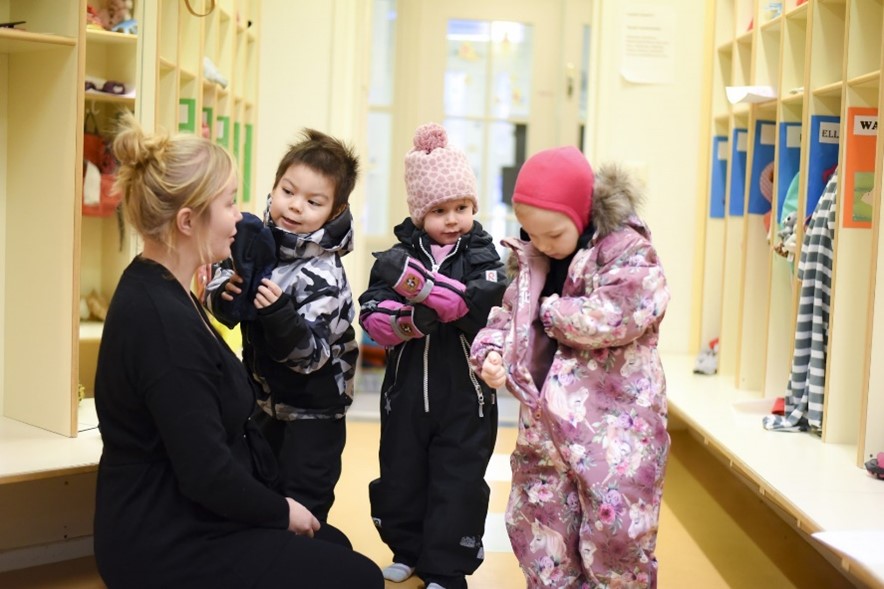Provaka – Positive group learning in early childhood education and care

The Provaka model involves a change in day-care centre’s operating culture, with the aim of supporting children’s social behaviour. The change starts with a review of the value base together with the persons who have custody of the children. Key aspects in the change of operating culture include developing cooperation between the adults in the day-care centre and agreeing on common operating methods. The aim is to create a thriving day-care centre with a supportive and positive atmosphere.
The pilot phase of Provaka started in 2018 at Saarikello day-care centre in Kuopio, funded by the Ministry of Education and Culture in cooperation with the Universities of Eastern Finland and Jyväskylä, and the Niilo Mäki Institute. The collaboration with the Niilo Mäki Institute was restarted in the autumn of 2022 with the training of staff and Provaka instructors. Currently, 16 day-care centres have signed up, and all of them are currently at different stages of implementing Provaka.
The foundations of a child’s social behaviour are built in their natural operating environments, and early childhood education and care is an important one. In the Provaka model, the subjects being taught are based on a common value base of the day-care centre, and teaching and practice takes place in everyday situations. Positive feedback, i.e. recognition, is the basis of everything. Recognition is an effective way to teach desirable social behaviour. The recognition is reinforced with reminders, i.e. concrete badges (pro cards). The children collect the badges indicating their successes on their group’s pro board, and when the board is full, there is a celebration with fun activities planned together with the children.
It’s easy for children to succeed and learn in a Provaka day-care centre!
